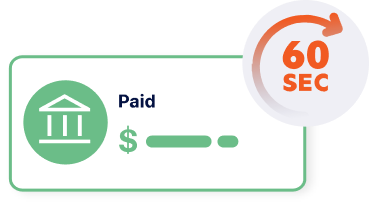We’ve all been there: you’re slogging through your business, battling slim margins and unpredictable cash flow, while your friend’s business seems to be rolling in money. Ever wonder which small to medium-sized businesses (SMEs) really stand out when it comes to cash flow? And, more importantly, why does it sometimes seem so much easier for others?
Here at Forwardly, we get it. So, we did some digging to find out which industries are the best when it comes to steady, strong cash flow. Now, we know that there are tons of factors that affect a business’s success, so we’ve kept it as objective as possible. You’ll find these industries listed alphabetically—because no one wants to play favorites, right?
And yes, you may see some overlap. Some of these industries include franchises or home-based businesses. In the world of business, as in life, things are never perfectly clear-cut.
Franchises
Let’s start with the obvious one: franchises. If you’ve ever thought of owning a franchise, now’s the time. Popular franchises provide cash flow from day one thanks to brand recognition and a tried-and-true business model. From fast food to fitness and even financial services, there’s a franchise for nearly every interest.
The catch? The initial investment can be steep. Brand-name pricing isn’t cheap. But once you’ve committed, you can expect steady cash flow as long as you stick to the system.
Finance and insurance
Insurance brokers and financial advisors are raking in cash year-round—no seasonal peaks and valleys here. While certification and training are required, the overhead is low, and the work is relatively recession-proof. Most financial products are provided by third-party companies, so once you’re up and running, the costs are minimal. You’ll be doing the heavy lifting in terms of customer relationships, but the cash keeps coming in.
Health care and social assistance
With Baby Boomers ageing and entering retirement, businesses in senior care, nursing homes, and rehab centers are seeing consistent demand—and cash flow. While there are significant labour and facility costs to manage, these businesses tend to stay profitable because the market is growing, and the demand is outpacing supply. It’s a challenging field but one that promises reliable returns.
Home-based businesses
If you’re looking for a low-overhead, high-flexibility business, a home-based operation could be your golden ticket. Think child care, pet care, event planning, or other services that can be run from home. The key to consistent cash flow in these businesses is building a solid customer base and maintaining excellent relationships with clients. Long-term contracts and clear invoicing are your best friends here.
Also read: Top 5 Cash Flow Management Hacks Every Founder Needs to Start in 2025
Niche restaurants
Yes, the restaurant industry has a reputation for razor-thin margins, but niche restaurants (think food trucks, local cafes, and specialized eateries) are an exception to this rule. When you carve out a unique offering and develop a loyal customer base, your cash flow can remain stable. The trick is in managing food and labor costs, but when you nail it, your cash flow can soar.
Real estate rental and leasing
Real estate has long been a reliable cash flow generator. Once you purchase a property, you can lease it out for passive income. Whether you’re renting out residential or commercial spaces, as long as you price your units competitively, you’ll enjoy a steady stream of cash. Of course, property maintenance and interest rate fluctuations are things to consider, but overall, real estate is a solid investment.
Pro tip: Interested in real estate but don’t want to deal with the hassle? Look into property management services that can handle the day-to-day for you.
Retainer-based professional businesses
Marketing agencies, law firms, and real estate businesses often thrive on retainer models. Clients pay upfront for a set amount of services over a period of time, creating predictable and consistent cash flow. While losing a client can cause a temporary dip in cash flow, the regular payments make it easier to plan for the future. Want stability in your business? Consider a retainer-based approach.
Also read: 5 Ways to Reduce Cash Flow Delays in Your Business
Regulated industries
Some of the most lucrative industries are those that are heavily regulated, such as energy, oil and gas, and utilities. These industries require compliance with strict government standards, but the companies that succeed are typically well-funded and well-protected against competition. It’s a high-barrier-to-entry field, but if you can navigate the regulations, the rewards can be substantial.
Software as a service (SaaS)
The SaaS industry is booming, and for good reason. Businesses are increasingly moving their operations to the cloud, and web-based applications are often cheaper to produce than physical products. Plus, subscription-based models ensure steady cash flow.
If you have a good idea and a solid pricing model, SaaS can provide reliable and recurring revenue. The market for these services is growing fast, with projections suggesting the SaaS industry will surpass $344 billion by 2027
Also read: 7 Ways to Boost Cash Flow for your SAAS business
Service businesses
From landscapers to personal care providers, service businesses offer great cash flow potential once you’ve built up a loyal customer base. These businesses often have low startup costs, and once you’ve established a solid reputation, your cash flow becomes predictable. Want to charge a bit more for your services? A good reputation and quality work can give you the leverage to increase rates.
What if your industry didn’t make the list?
Reading through this list, you might have noticed some common trends: low overhead, steady revenue, and the power of recurring business. But what if your business isn’t in one of these top 10 categories? Don’t worry. There’s always room to improve.
Take a closer look at your operations and identify areas where you can create efficiencies. One major step is to start monitoring your cash flow—because if you’re not keeping track, how will you know if you’re really growing?
That’s where we come in. Forwardly offers faster payment options designed specifically for SMEs. Connect your accounting software to your Forwardly account, and start seeing your streamlined cash flow. You’ll be on your way to becoming a cash flow pro in no time.
Ready to take control of your cash flow? Get started today with Forwardly and watch your business thrive.
 Back to Blog
Back to Blog



